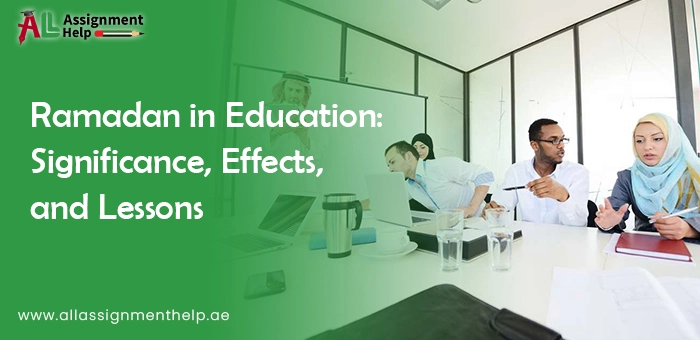Ramadan is the holy month of necessary fasting for Muslims. Muslim scholars hold that God started his divine exposure of every heavenly before the final and final revelation of Quran in the Ramadan. And this creates Ramadan the host month for every of the writs in revelation. For that reason, in this article, we will discuss the effects of education and how students can increase their performance while fasting.
What is the significance of Ramadan?
It is the holy month that describe in the holy book of Muslims known as the Quran. The book was revealed to Prophet Muhammad (P.B.U.H) to Angel Jibreel in the year of A.D 610. Also, the timing of revelation is given certain importance and it is known as the Laylatul Qadar or the night of power.
How does Ramadan affect students?
In 2024 the holy month of Muslims starts on 11 March. It is a holy month for every Muslim all over the globe. So it is a festive time in Islam, destined for friendship and community. For Muslim students, it can every so often be lonely and dividing mostly if they are in a minor community. But then there are certain things teachers can do to help students between the month Holy month of Ramadan.
- Do not force students to out themselves
- Ignore food-centric class events
- Decrease potential risky physical activity
- Provide time and space for prayers
- Create a substitute space during lunch
- Watch for students who may need extra help
What are the 5 importance of Ramadan fasting?
The significance of the holy month of Muslims is huge and you cannot write in just a paragraph to describe the details of what is the aim of fasting in Ramadan. Then we will describe the 5 points and these are as follows.
1: Fasting is a great lesson in complying with Allah
Allah has not told us the direct reason why we are fasting on this holy month. We fast simply because Allah told us to do so in his holy book of the Quran. And yet it does not imply we do not look for the benefits of fasting on this moth. However, there are the bulk of benefits of fasting in this holy month that you will not forget.
2: Fasting during Ramadan is the 4th pillar of Islam
Since fasting is the fourth pillar of Islam that defines its significance. Also, the person deen’s will not be finish without fasting. There are 5 basics of every person in Islam and that will make the person’s trust stronger.
3: Fasting in this month is self-progress
Fasting provides Muslims the chance for self-progress over the practices that we are suggest to do whereas fasting by our Prophet Muhammad. These are reciting the Quran, praying, and performing Dua. But every one of these needs a good language in Arabic. And in what way to perform these holy deeds. In addition, the top All Assignment Help offers plenty of discounts and perks on this holy month for Muslims. Thus if you need any kind of help then you must approach them.
4: Self Discipline
The idea of fasting conveys into one’s head an image of someone walking into the tree and passing by a tree with apples hanging from it and waiting for someone to pick them up. So it is understood that the current state of a person will only carry them trouble. So they need to learn what they make their own choices while fasting and then need to stick with it.
5: Increase your health while fasting
Fasting has been proven to be healthy in plenty of good ways and aspects logically. So what it does is support the digestive system to remain calm and regulated. As a result, that supports digestive issues. Also fasting in Ramadan proves to decrease heart illness, and maintains sugar and fat levels in in check since it is a diet.
What is Ramadan for educators?
Below is the top guide for teachers on the holy month of Ramadan
- Fasting
For plenty of students fasting can be problematic and challenging this month. The kid will wake before sunrise to eat a meal with their families known as Suhoor. So they will not be capable of eating food and drinking water later after sunrise once the fast is broken between the after meal. This implies they have to wait for at least 12 to 14 hours. In those situations, teachers can be mindful of fasting students by offering a substitute location between lunch periods. These are the empty classroom or the lecture hall. On the contrary, if he is hot then in that case teachers need to enable the students the chance to play indoors during recess. - Praying
It is the second of Islam known as Salat. Every Muslim needs to pray five times a day not just in the month of Ramadan. So teachers have to provide students a place where they pray. Teachers can be proactive by asking once they need to leave the classroom as a means to pray. This is when the time comes for prayer students need to leave the classroom and not disturb anyone.
What lessons can be learned from Ramadan by everyone?
There is a famous misconception about this month that Ramadan is only about fasting. This is the wrong concept by non -Muslims. It is well surprise that plenty of us spend the day without eating and drinking from sunset to sunrise. Fasting aims to wash and detox the body. But then it also washes the mind and soul. It teaches us to keep discipline and to exercise patience. Since fasting is not easy, however, there are plenty of lessons we learn in this holy month of Ramadan. These are as follows.
- Balance
- Reflection
- Breaking/ Creating habits
